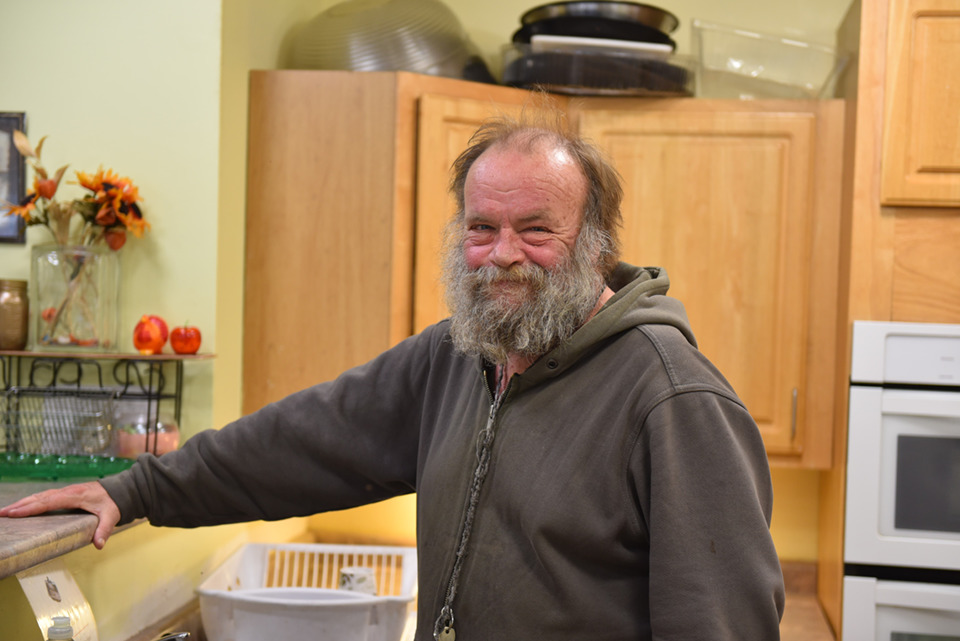Everyone deserves a safe place to live, and “Housing First” is the philosophy at the center of Preble Street’s housing work: housing must be the first step in addressing homelessness. When people have a safe, stable place to call home the results are profound and far-reaching. Once out of the chaos of homelessness, where every minute is focused on basic survival, people can stabilize and then work toward a more fulfilling and independent future; they can leave their traffickers, overcome substance use disorder, focus on their health, education, or employment, and rebuild relationships with friends and family.
Dignified, 24/7 shelters staffed by professional social workers are often a key part of the transition from life on the streets to permanent housing, ensuring that people have a safe, supportive place to stay until housing can be obtained. And this support does not end once a person is housed; “housing first” does not mean “housing only.” The evidence-based model of housing first includes providing the support necessary to maintain housing — often in the form of intense casework and connections to critical community resources. Securing a home is the first step in a long healing process, not the final goal. The point is that there are no prerequisites to being housed. People don’t have to achieve sobriety, employment, or any other goal before gaining access to housing.
After experiencing homelessness for years and staying at a Preble Street shelter, Kara recently moved into a Florence House apartment. As can be the case for many people who are newly housed, it took some time to adjust and settle in to her new home and life. The first few months were a challenge, but Kara has re-engaged in case management services and remains safely housed, due in part to advocacy by, and support from, Florence House staff. Advocacy is a core tenet of Housing First philosophy that staff practice and can be the defining factor in a successful transition from homelessness to home.
Housing is not “one size fits all” and Preble Street caseworkers are there to support clients as they rebuild their lives. The results we have seen in our housing programs — which include Veterans Housing Services, the Rapid Re-Housing program, Teen Housing Services, the Homeless Opioid User Service Engagement (H.O.U.S.E.) program, and the supported apartments at Logan Place, Florence House, and Huston Commons — have been astounding. Individuals who literally lived on the streets for years are now living safe dignified lives in their own homes.
But individuals aren’t the only ones impacted by this approach; the entire community benefits when people experiencing homelessness are provided with a home. People with housing use far fewer emergency services, resulting in a decrease in police calls, emergency room visits, medical transports, and jail stays. A report from the Community Preventive Services Task Force (CPSTF) published in the Journal of Public Health Management and Practice showed societal cost savings of $1.44 for every $1 invested. Study after study has shown the incredible economic savings the Housing First approach has on communities. Housing saves the community money, and more importantly, housing saves lives.

